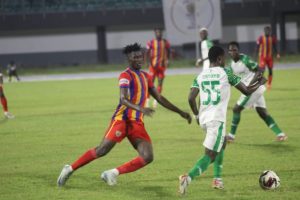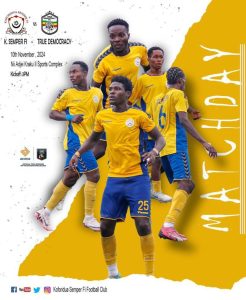English language grammatical, pronunciation filth on airwaves, public platforms and other matters
The quality of spoken English language has sharply deteriorated among users in Ghana.
However, comments from the general public appear to suggest that good English by politicians and other public service officials have not solved the socio-economic problems of Ghanaians for which reason; mediocrity in using the language could be tolerated.
In other words, according to some individual Ghanaians, it does not serve any useful purpose striving to speak flawless English.
The truth of the matter, however, is that, many of us have not imbibed what was taught at school; so, we are deficient in grammar and/or the pronunciation of words.
Our airwaves have, thus, been flooded with substandard English, with many a speaker confidently, but in ignorance, deploying the wrong grammar, pronunciations and expressions of the English language.
“Like I said”, “most at times” and “many at times” are but a few of the many illegitimate expressions that have beleaguered our airwaves and other important public platforms from low and, regrettably, very highly-placed persons. Thus, rather than “As I said” , many of us have adopted, in fact, embraced the expression “Like I said” while wrongfully merging “most of the time”with “At times” to become “most at times” and changing “many a time” to “many at times”.
On our airwaves, in our schools, during social interactions and on other public platforms, “August” is pronounced as “Agust”, “among others” as “amongst others”, “launch” is pronounced as “lunch”, “honesty” as “hanesty”, “consequently” as “kwensequently” and “semester” as “semister”(the correct spelling, though, is “semester”).
Often, many of us treat the words “outset” and“onset” as having one and the same meaning and use the two words interchangeably.
The words “status, incumbent, mutual and verbatim” also find themselves generally mispronounced while many of us have bastardised the idiomatic expressions “early on” and “last but not least” to become “earlier on” and “last but not the least”.
Another expression, actually a legal terminology, the pronunciation of which has suffered desecration from legal practitioners, judges and laymen alike is the expression “prima facie”. For those who can access the Black’s Law dictionary, please look for the pronunciation there. That assignment, notwithstanding, let me hazard some tutorials. The “I” in Prima is pronounced as in “Fridge” not “aai” as in primary. Then the “fa” in facie is pronounced “fei” as in face, while “cie” is pronounced “shi” as in “shit”.
Indeed, so entrenched is the notoriety level of the misuse or mispronunciations that any attempt or effort to correct them has either been denounced, derided or treated with contempt, if not disdain.
There is also this widespread tendency to confuse the adjective “old”, as in the idiomatic expression “Old Boys” or “Old Girls”, with the adjective “past” or “former”. The truth of the matter is that once one is out of school, one either becomes an Old Boy/Girl, or a past /former pupil/student. The distinction ought to be made between fresh/continuing pupils/ students (who, altogether, are current pupils/students) and pupils/ students who have either left the school before their completion time or who have completed their courses of study who are former/ past pupils/students. In other words, pupils/students who have left school before their completion time or completed their courses of study cannot be referred to as “Old Pupils/Students”. They are past/former pupils/students or Old Boys/Girls.
Then, in some of our schools, particularly the second cycle institutions or secondary schools, the rules of abbreviation have been abused, compromised or misapplied for the names of the schools. So popular is the style that even if attention is drawn to the error, and the error is fully appreciated, the need for correction is considered irrelevant or needless and, therefore, vehemently resisted.
There is a school in Anloga in the Volta Region of Ghana. This school was founded with the name Zion College. Another is Bishop Herman College.These schools have properly abbreviated their names as ZICO and BIHECO, respectively.
However, this style or pattern of abbreviation have been wrongly imitated by other schools which are not called “colleges” but “secondary schools”.
Some of the readily-available examples are the then Keta Secondary School, Anlo Secondary School, Sogakope Secondary School and St. Paul Secondary School. So that, instead of Ketascho, Ansescho, Sogascho and Spacho, these schools have adopted the wrong abbreviations, such as Ketasco, Anseco, Sogasco and Spaco, respectively.
While this school-name abbreviation controversy goes apparently unnoticed by many, hangs on, the government has muddied the waters by replacing the word “secondary” with “High”.
Without doubt, the “High” has not added any value to the standard or quality of education in Ghana. There are three levels of education, namely Basic, Secondary and Tertiary. Let us return to the traditional names-Junior/Senior Secondary Schools. After all, the examination taken at the end of the three-year course is the West African Senior Secondary Certificate Examination (WASSCE) and not West African Senior High Certificate Examination.
Obviously addicted to copying from and mimicking the advanced world, and just as we have mimicked the word “High” from the American education system, so also has the Bank of Ghana wrongly decided to add the name Ghana to our currency to become Ghana Cedi. Why Ghana Cedi when Ghana is the only country in the world which has the Cedi as a currency? The United States Dollar is called the US Dollar because other countries such as Canada, Australia and Zimbabwe, for example, also use the Dollar as their currency. The name of Ghana’s currency is “Cedi”. It cannot be “Ghana Cedi!”
Shall we, then, walk into Ghana’s Parliament, where we hear most, if not all, Members of Parliament, shouting “Yeah Yeah”, on the Floor of the House, which expression has been adopted or is mimicked by the general Ghanaian public? For Heaven’s sake, the expression is “Hear Hear”.
From this pedestal, let us proceed to the designations of some of our Ministries where the names they bear are inaccurate-in my view. Two of such Ministries are easily identifiable. And they are the Ministries of Lands and Natural Resources, and Roads and Highways. In truth, land is a natural resource and that being so, the appropriate designation for the Ministry should be either “The Ministry of Lands & Other Natural Resources” or “The Ministry of Natural Resources”.
On the other hand, a road is a road, be it a feeder, urban or highway. Thus the designation should, simply, be “The Ministry of Roads”.
Again, to ignore or overlook the error of providing an alternative name for the Commission that was established to review the 1992 Constitution will be unacceptable. While the name of the Commission is “The Constitution Review Commission”, many wrongly or mistakenly call it “The Constitutional Review Commission”.
BY G.D. ZANEY
The post English language grammatical, pronunciation filth on airwaves, public platforms and other matters appeared first on Ghanaian Times.




![EISH WENA: Men drop casket at funeral in front of mourners [Video] EISH WENA: Men drop casket at funeral in front of mourners [Video]](https://africatopforum.com/wp-content/uploads/2024/11/Casket.jpg.optimal-V9zYiX-300x215.jpeg)



